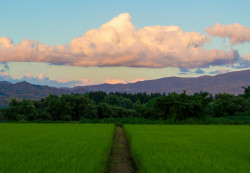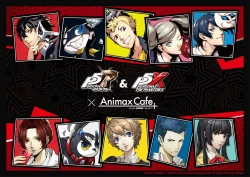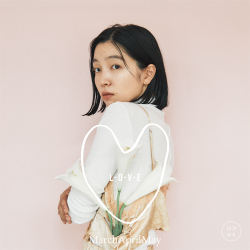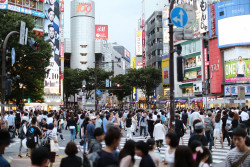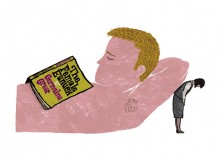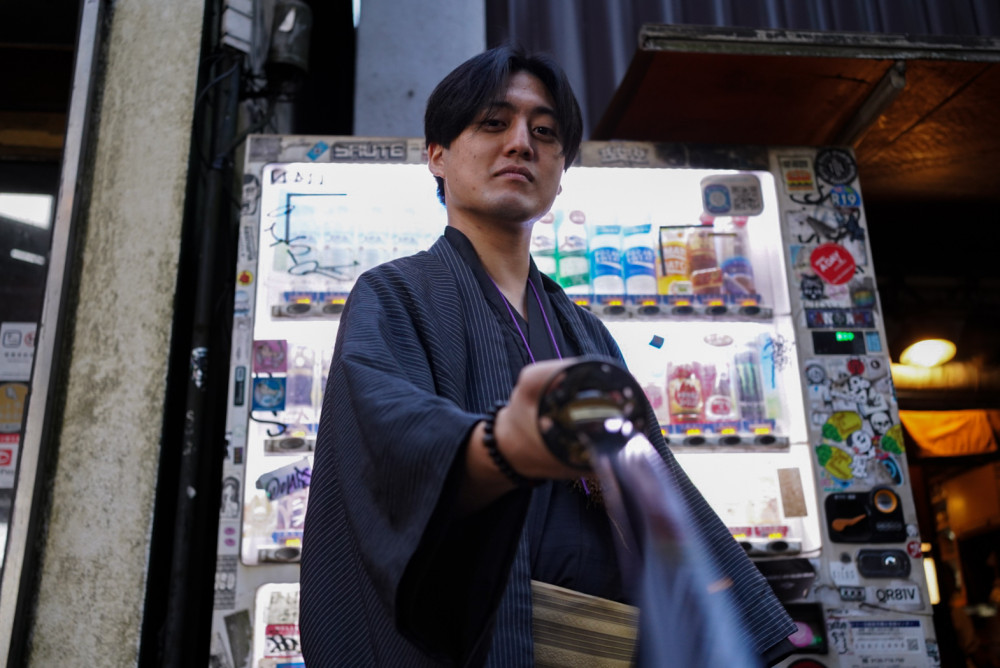
December 17, 2024
Matcha Samurai: Tradition Meets Humor
Setting the record straight on Japanese culture
Japanese people don’t drink cold green tea. Sashimi is sushi. It’s mandatory to drink all the ramen broth before leaving a restaurant. If any of these sweeping statements are raising your eyebrows, you’ll understand Matcha Samurai’s content.
Because, of course, none of them are true. Walk into any conbini (convenience store), and you’ll see rows of chilled green tea in the drink refrigerators. Sushi and sashimi, just like burgers and hot dogs, are different things. No chef would chase you down the street if you left broth in your ramen bowl. Yet, many content creators sharing these inaccurate statements rake in thousands of views.
Rather than letting frustration take over, the UK-based content creator blends humor with culture and education. From clarifying cultural quirks to debunking false information, Matcha Samurai offers a refreshing take on Japan’s customs and lifestyle.
Metropolis sat down with Matcha Samurai to discuss his creative journey, perspectives on Japan and the UK, and what keeps his audience coming back for more.
Metropolis: You go by Matcha Samurai online. Do you ever share your real name?
Matcha Samurai: When I meet people in real life, I do introduce myself with my real name—I don’t go around saying, “Hi, nice to meet you, I’m Matcha Samurai.” [Laughs] But I stick to the alias online; it just works better that way. There’s no deep meaning to the name Matcha Samurai—it’s actually kind of random. I saw a guy making coffee in the wilderness, got inspired, and started making matcha in traditional clothes. Matcha Ninja didn’t feel right, but Matcha Samurai? Sure. Ironically, I’m not actually a fan of matcha! [Laughs]
M: How often do you visit Japan?
MS: I’m based in the UK, so I make it back to Japan about twice a year. When I go, I stay for about a month to spend time with friends and eat all the food I’ve been missing.
M: Having lived in both Japan and the UK, how has this influenced your content?
MS: It’s crazy to see how much Japanese culture, especially food, has influenced the West. Like, ramen and sushi are seen as luxury foods in the West, but in Japan, ramen is quick and casual. I try to bring this into my content, even if my main focus is comedy—it comes in bit by bit.
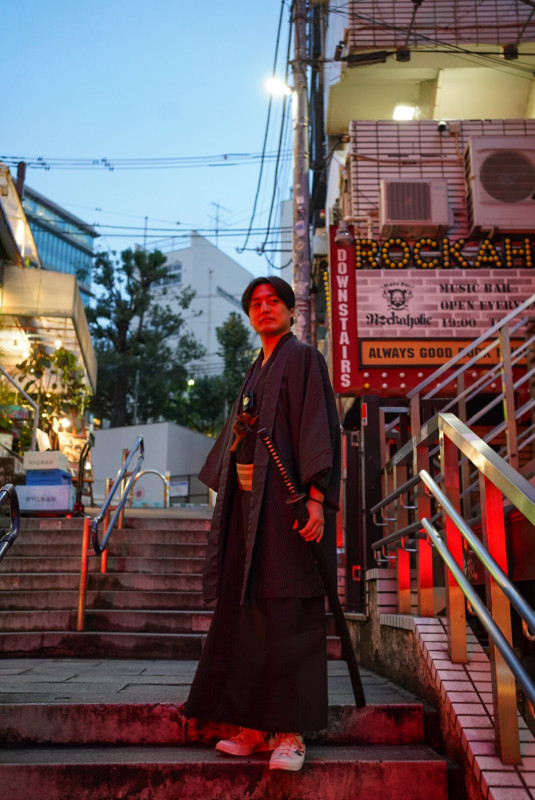
M: What inspired you to make videos about Japanese culture with humor?
MS: I started around three years ago during the lockdown. Funny thing—I didn’t set out to focus on Japanese culture. I always wore a kimono in videos, and people started calling me “Sensei.” They’d send me viral clips of people messing up Japanese culture, like using chopsticks wrong. So, I’d respond, and it turned into a thing. It wasn’t planned; I just answered people’s questions and it grew from there.
Photo credit: Mariam Bingayan Tuazon
M: How do you decide what topics to cover in your videos?
MS: Honestly? I don’t plan or script anything. If something pops into my head, I just do it. Like today—I’m wearing my kimono because I was shooting a video right before this. I shoot every day; it usually takes me just a few minutes. No overthinking. If I see someone in London doing something very “not Japan,” I think, “Yep, that’s a video.”
M: What’s been the most rewarding part of connecting with a global audience?
MS: I get to hear so many perspectives! It’s not just comments from Americans or British viewers—people from all over the world share what’s normal for them. Like, I’ll say, “In Japan, we do this,” and they’ll reply, “Oh, in my country, we do it this way.” It’s like a cultural exchange in my comments section, and I love that.
M: Do you ever struggle with negative feedback?
MS: Oh, yeah. But honestly? If I get a negative comment, I probably deserve it. [Laughs] I can’t please everyone, and that’s okay. I just think, “Noted, I’ll improve.”
M: Some of your videos highlight dating culture differences between Japan and the West. What stands out to you?
MS: In the UK, people don’t jump straight into a relationship. First, they go on dates, do things together, see if they’re compatible, and then decide if it’s serious. In Japan, it’s like, one date and suddenly, “Hey, this is my girlfriend now.” I always found that kind of bizarre—even in high school, it was like, “I barely know you, but okay, I guess we’re dating.” In that sense, the slower pace of Western dating makes a lot more sense to me!
M: What’s your take on Tokyo versus other parts of Japan?
MS: Honestly, I’m not a huge fan of Tokyo. Maybe it’s the outsider perspective because I’m from the countryside in Kochi Prefecture. I definitely prefer the countryside.
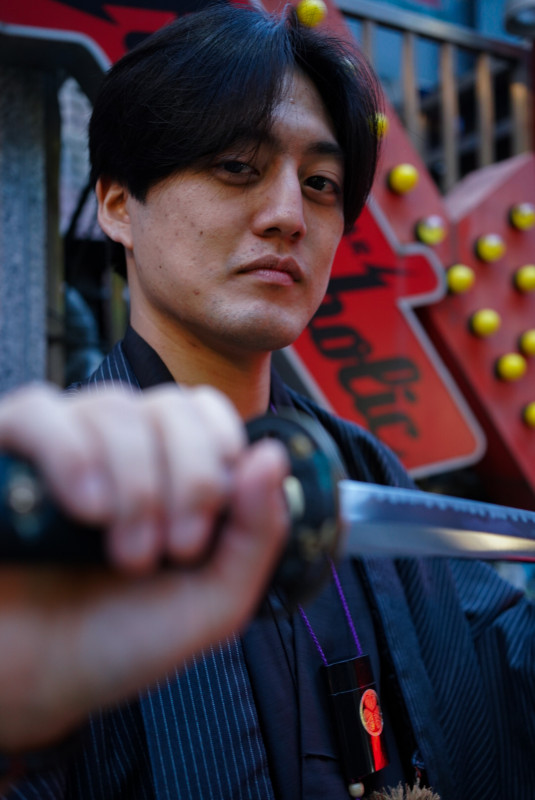
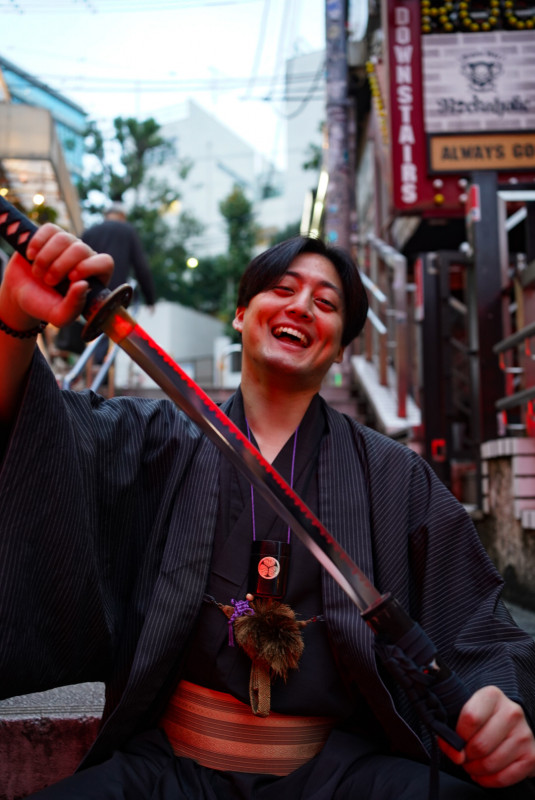
M: What do you miss most about Japan?
MS: Food! Conbini snacks, all the little things. And the cleanliness—not that everywhere in Japan is spotless—but compared to London? Yeah, I miss it.
M: Any surprising facts about yourself?
MS: I don’t like matcha or miso soup. [Laughs] Yeah, pretty ironic given my name.
M: What’s next for you?
MS: I’ve got some plans for a series on Japanese conbini food when I’m back in Japan—maybe even show off some cooking skills, like making omuraisu and katsu. But honestly, I’m not doing this full-time. It’s more of a hobby. Right now, I’m happy to keep it a passion project and take it further in my own way.
You might also like reading:
Based in Japan: MIYACHI, the founder of Konbini Confessions
